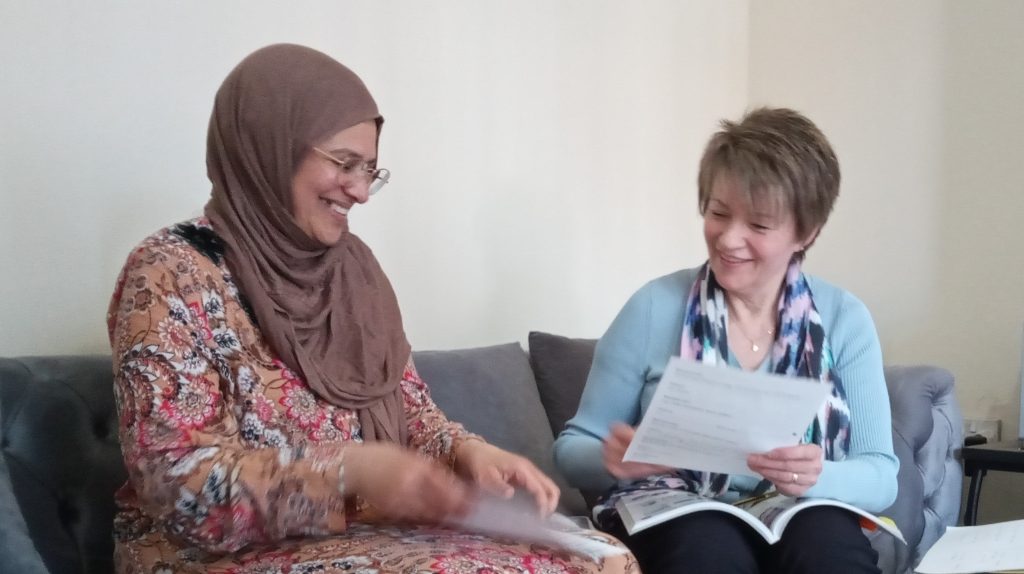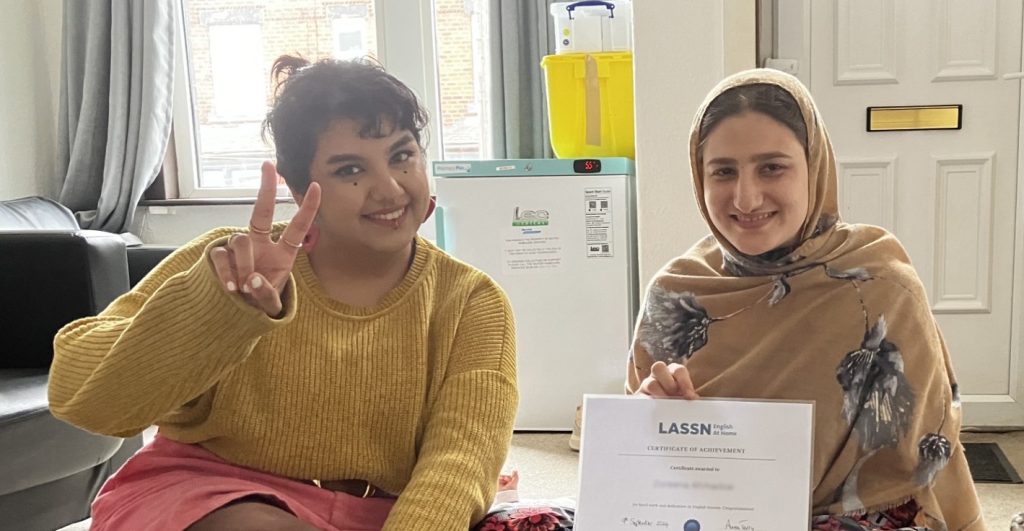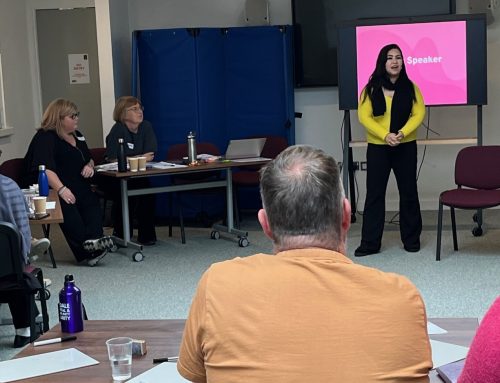This article is part of an occasional series sharing not just what LASSN does, but why it matters.
Every one of our projects has grown over many years, shaped by the experiences, insights, and creativity of staff, volunteers, and the people we support.
By reflecting on the “why” behind our work, we hope to show how deeply it is rooted in our values—and how, thanks to our volunteers, funders and supporters, LASSN continues to practise a quietly radical approach: bringing together the strengths and priorities of everyone involved to create lasting change.

English at Home
Why a Classroom Isn’t Always the Answer
Traditional ESOL often means attending classes in a community centre or college, where the times are fixed and it’s easy to fall behind if you miss a lesson. For many parents juggling childcare, people with disabilities or past trauma, and new arrivals navigating official systems, those models just don’t work. Without practical English, everyday life in Leeds—from booking a GP to joining a playgroup—can feel out of reach, and that impacts whole families.
Bringing ESOL to People’s Doorstep
Our solution is simple: we train volunteers to visit learners at home for one‑to‑one, relationship‑based sessions. By removing barriers like transport, childcare or Wi‑Fi, people can easily access ESOL in their homes and learn key life skills.
Power in the Learner’s Hands
There’s no set curriculum; learners choose their topics—whether that’s booking a GP appointment, reading a letter from school, visiting local shops or filling in a form. Volunteers listen, clarify language and learn alongside them. It’s real‑life English in real settings, with the learner empowered to focus on what matters most. As confidence grows, learners use these skills in everyday life—booking health appointments, joining community groups and attending college when the time is right.
Everyday Kindness as Mutual Aid
Swapping stories over a biscuit, sharing where to buy the best falafel in Kirkgate Market, or laughing about Yorkshire dialect—these simple gestures weave people into Leeds life. Small acts of welcome ripple out into a friendlier, more connected community. As one learner told her teacher, “You were the first person who smiled at me while I was here in the UK.”
Shifting Power, Together
Our volunteers don’t hold all the answers. They co‑create each session as equals, validating the learner’s experience. This learner‑centred approach isn’t just best practice; it’s transformative. People don’t just learn English—they find the confidence to use it by enrolling their children at school, joining a sewing class or even volunteering themselves. Tutors learn about home cultures and customs while developing their own confidence and skills, and become part of a supportive network of volunteer tutors.
Building Bridges—Today and Tomorrow
Each year, LASSN volunteers deliver about 2,000 home‑based English lessons to roughly 100 learners. English at Home is about dignity, access and agency—removing barriers to education so people gain the language skills to build their future.
by David Skivington and Jon Beech
Find out more about becoming an English at Home volunteer.



